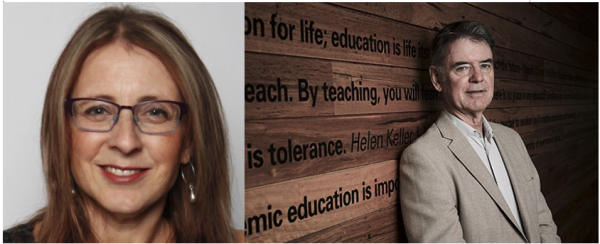2020 Marles Medals to Professor Sharon Goldfeld and Professor John Hattie
Professor Sharon Goldfeld and Professor John Hattie have been announced recipients of the 2020 Marles Medals, in acknowledgement of the impact and quality of research by these two leading University of Melbourne academics. The Marles Medals, established this year as companion awards to the Woodward Medals, are named in honour of Ms Fay Marles AM, an alumna and first female Chancellor of the University of Melbourne. Ms Marles was the first Victorian Commissioner for Equal Opportunity and a trailblazer in the areas of social welfare and public service.
Up to two medals will be awarded annually to two employees in the fields of Science, Technology, Engineering, Mathematics and Medicine (STEMM), or Humanities and Social Sciences (HASS for the most significant demonstrable contribution their excellent and original research has made to society, the economy and environment, in the preceding ten years.
Professor Goldfeld, from the Melbourne Medical School in the Faculty of Medicine, Dentistry and Health Sciences was awarded the Marles Medal in Science and Technology in recognition of her suite of breakthrough publications around the ‘right@home’ nurse home visitation project.
The right@home project is a randomised controlled trial following 722 disadvantaged women and their families through two years of home visits by specially trained maternal and child health (MCH) nurses. The trial is the most robust of its kind in Australia, and the resulting social, health and service benefits to families are considered an extraordinary contribution.

The Melbourne Graduate School of Education’s Professor John Hattie is recipient of the 2020 Marles Medal in Humanities and Social Sciences. Professor Hattie is internationally recognised for his highly influential publications on Visible Learning, which have had a significant impact on teacher effectiveness in school education.
Professor Hattie’s work statistically synthesises the results of 160 meta-analyses involving more than 300 million students to build high-level understandings of what works best in schools. Developed from this research, the Visible Learning Model has been implemented in 10,000+ schools internationally since 2009, stimulating productive and sustainable changes in educational practices across the globe. The publications and professional learning resources he has created emanate from 45 years of scholarly endeavour and sincere commitment to rigorous research of the highest quality, in support of improving educational outcomes for children and young people.